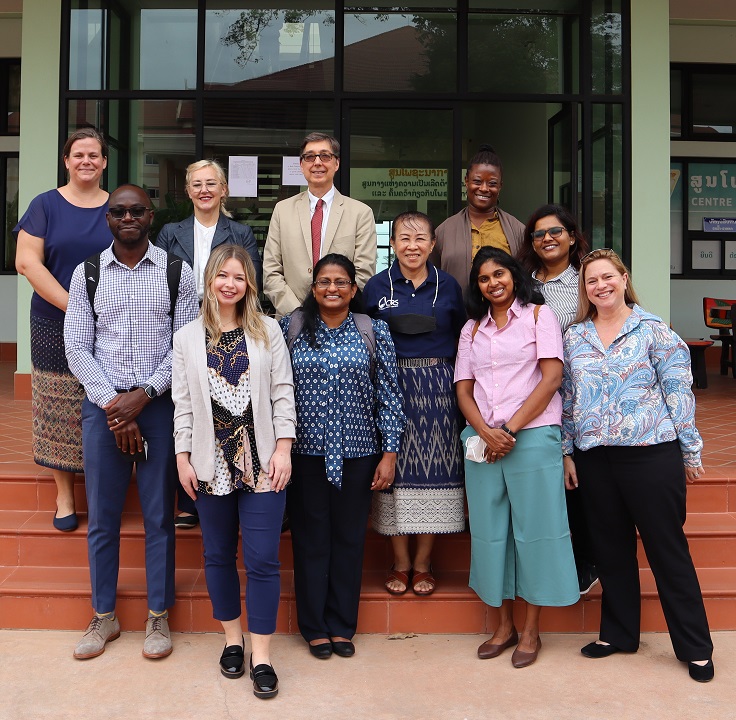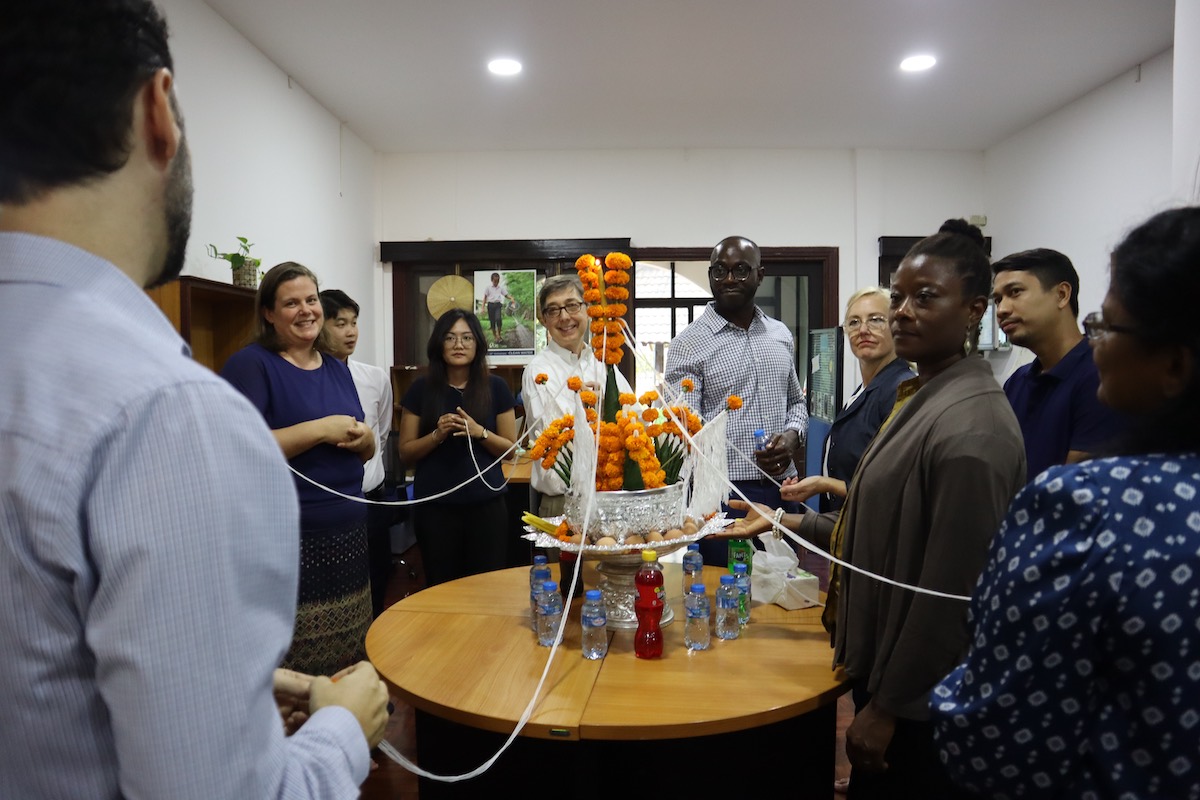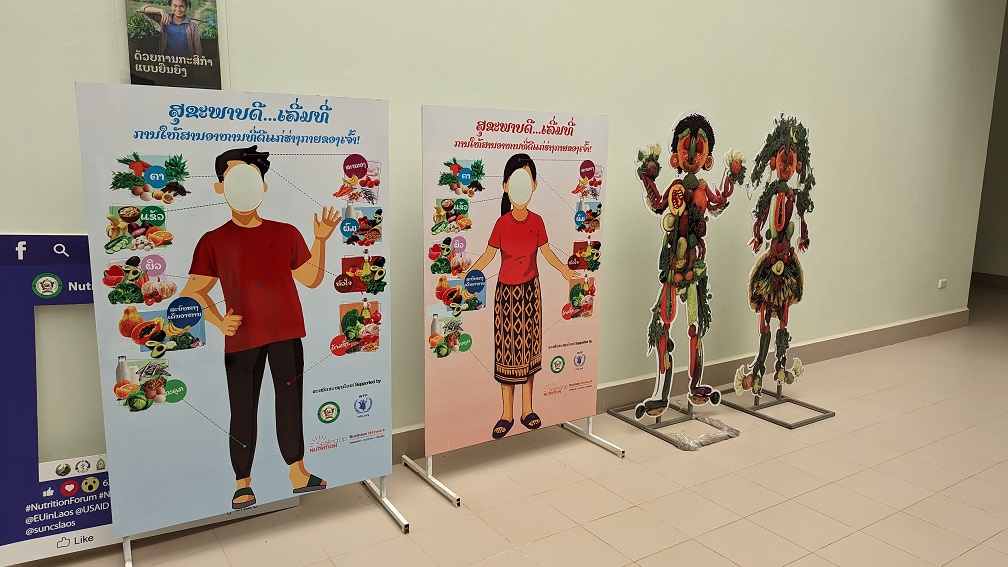Purdue-led project members visit Laos for first time since start of the COVID-19 pandemic
In November 2022, representatives from three US universities visited Vientiane, Laos to support the Applied Nutrition Research Capacity Building (ANRCB) project , funded by the United States Agency for International Development (USAID) via the LASER PULSE program. Led by Purdue University’s College of Agriculture and College of Health and Human Sciences in collaboration with Catholic Relief Services (CRS) and Indiana University, this four-year project is addressing malnutrition challenges in the Lao People's Democratic Republic by helping to strengthen research capabilities at key institutions. The team is working closely with the Lao Ministry of Health (MOH) to bolster research capacity in various areas related to food security and human nutrition.

The nine US-based team members visited Laos for the week-long series of training activities and research collaborations including meetings with project partners at the Center for Nutrition (CN), the University of Health Sciences (UHS) and the Lao Tropical and Public Health Institute (Lao TPHI). The team also met with USAID mission staff and representatives of the Lao government. Discussions focused on the range and scope of ANRCB research and training activities being carried out in partnership with the CN, UHS and Lao TPHI under the terms of the memorandum of understanding (MOU). These activities include six research projects being led by Lao partners, a series of eight practical training modules, and compilation of the country’s first bilingual Lao-English nutrition dictionary.
Among her other project-related activities, Somphone Soukavong, one of the collaborating partners from Lao TPHI, is working to establish the first-ever nutrition research agenda for Lao PDR. The ANRCB project is helping to facilitate this ambitious multisectoral undertaking.
“Creating a multisectoral nutrition research agenda is of great importance for helping to support evidence-based decision making around food and nutrition policy in Laos,” says Somphone. “Having the opportunity to work with Gerald Shively, associate dean in Purdue’s College of Agriculture and director of International Programs in Agriculture, and other members of the project team has been instrumental in ensuring this work is rigorous and responsive to the country’s needs.”
At the Center for Nutrition (CN), Phonesavanh Keonakone (CN Director) provided a welcome and tour of the facilities and offices. During the team’s visit to the US Embassy, Gerald Shively, associate dean in Purdue's College of Agriculture and director of International Programs in Agriculture, provided a brief overview of the aims and scope of the ANRCB project, overall capacity building objectives, project achievements to-date, and plans for the team’s visit and interactions with local partners.

“Working with my faculty mentor from Purdue, professor Nilupa Gunaratna, has been a great experience,” said Kethmany Ratsavong, technical officer at Lao TPHI and a project principal investigator. “Her guidance, as well as the training and mentorship provided by the project, is definitely helping to strengthen the nutrition research being conducted at Lao TPHI in multiple ways.”
During the week, between training sessions at the Center for Nutrition, the team split up. One group visited UHS while others visited Nongbone High School, one of several sites where data are being collected on adolescent nutrition and food consumption. At UHS, team members met to discuss work related to a review of the UHS nutrition-related curriculum to update materials, methods and topics.
This curriculum review is one of nine comprehensive ANRCB project activities developed collaboratively with Lao partners and stakeholders, via an extensive project inception and planning stage. In 2023, UHS will organize a faculty workshop to identify priority gaps in the MPH Nutrition curriculum. The ultimate goal is to prioritize training modules for further development by the project to infuse more “hands-on” learning in the UHS program.
"USAID has made a strong commitment to helping the Lao government strengthen research capacity and there are numerous areas for attention that leverage Purdue’s expertise, ranging from improving nutritional awareness and education to enhancing food safety," said Gerald Shively. "To ensure the continued success of the project in addressing key challenges, we will be working closely with the USAID, the Lao government, and other partners and stakeholders to identify priorities for action."

For more information visit the project page.






